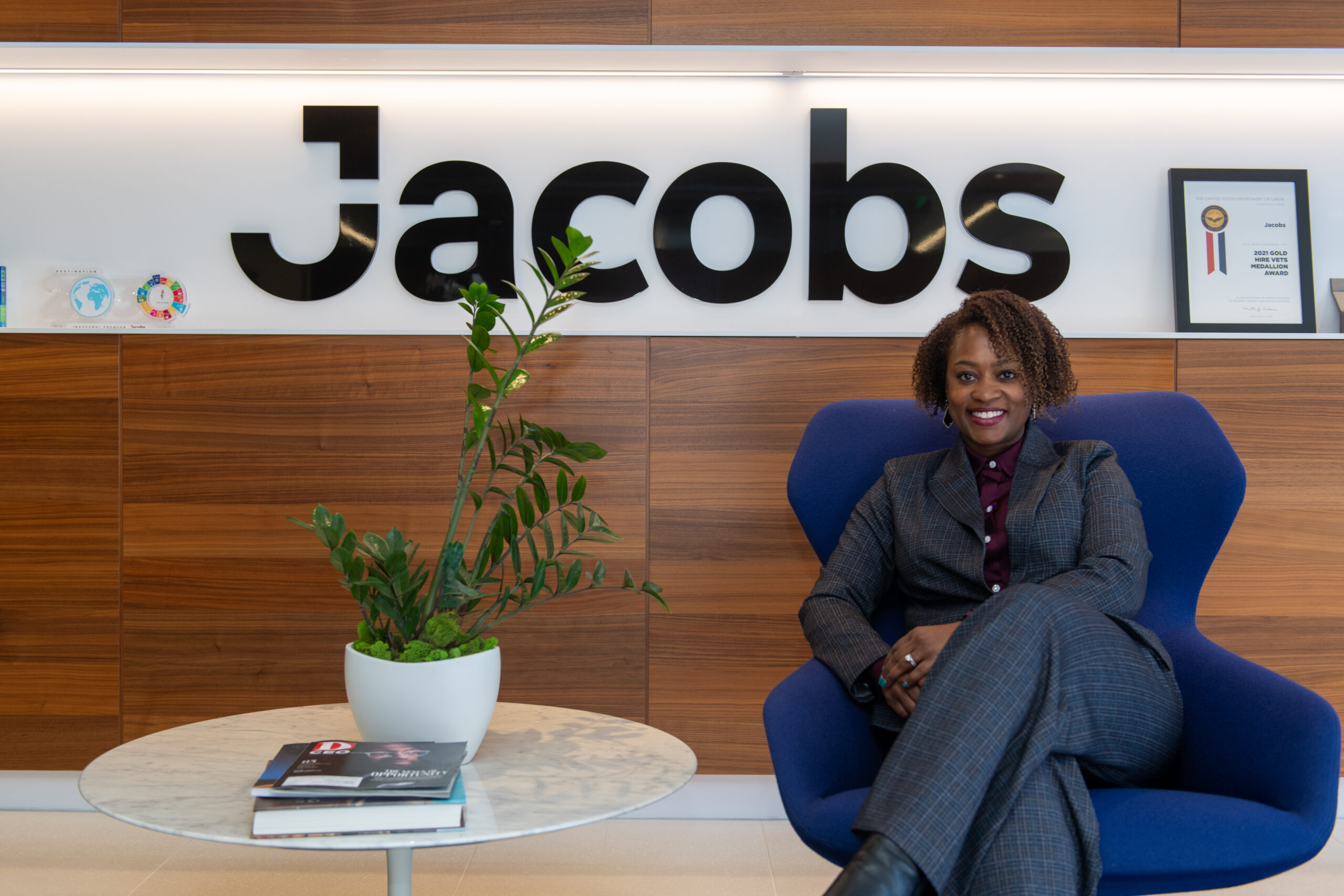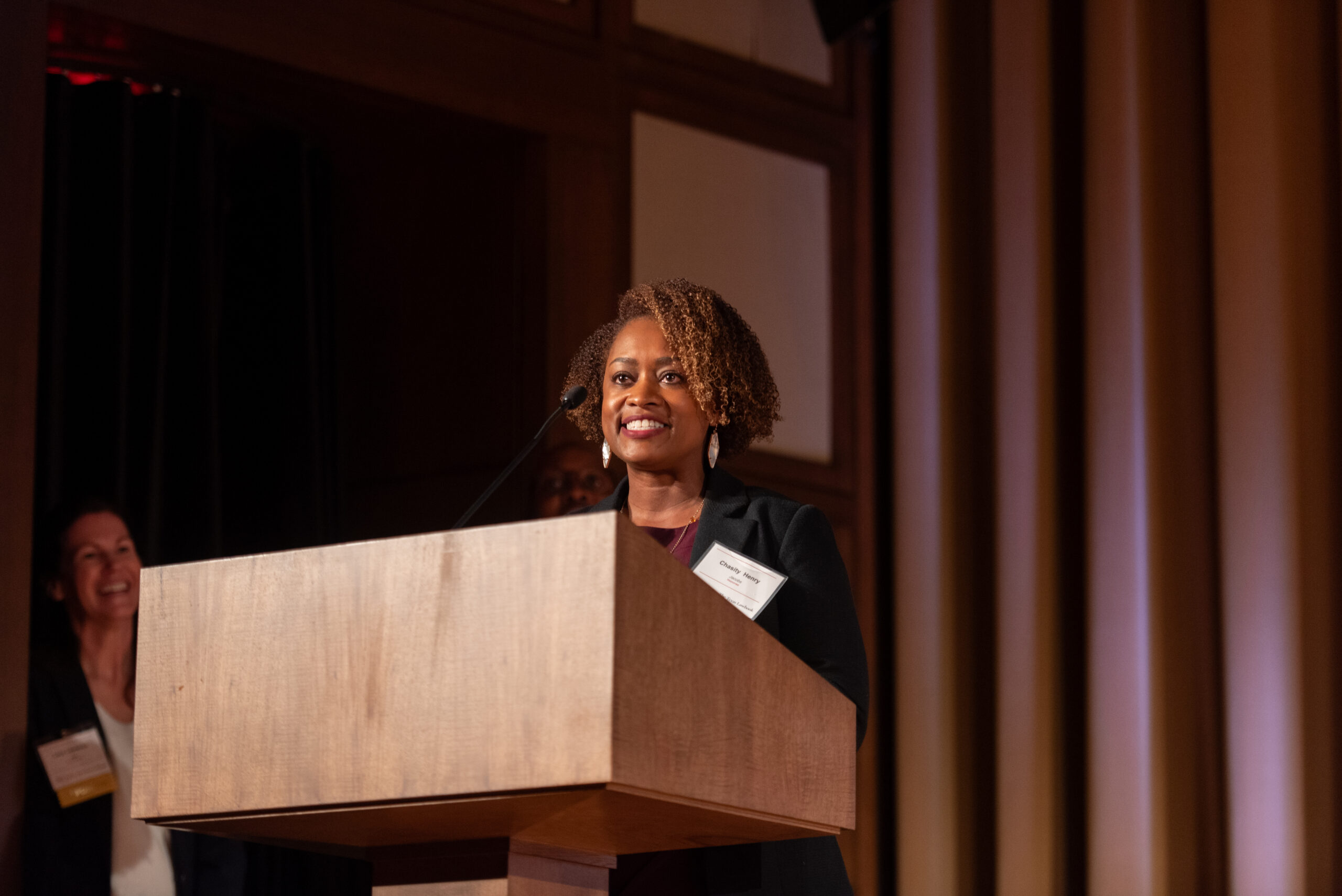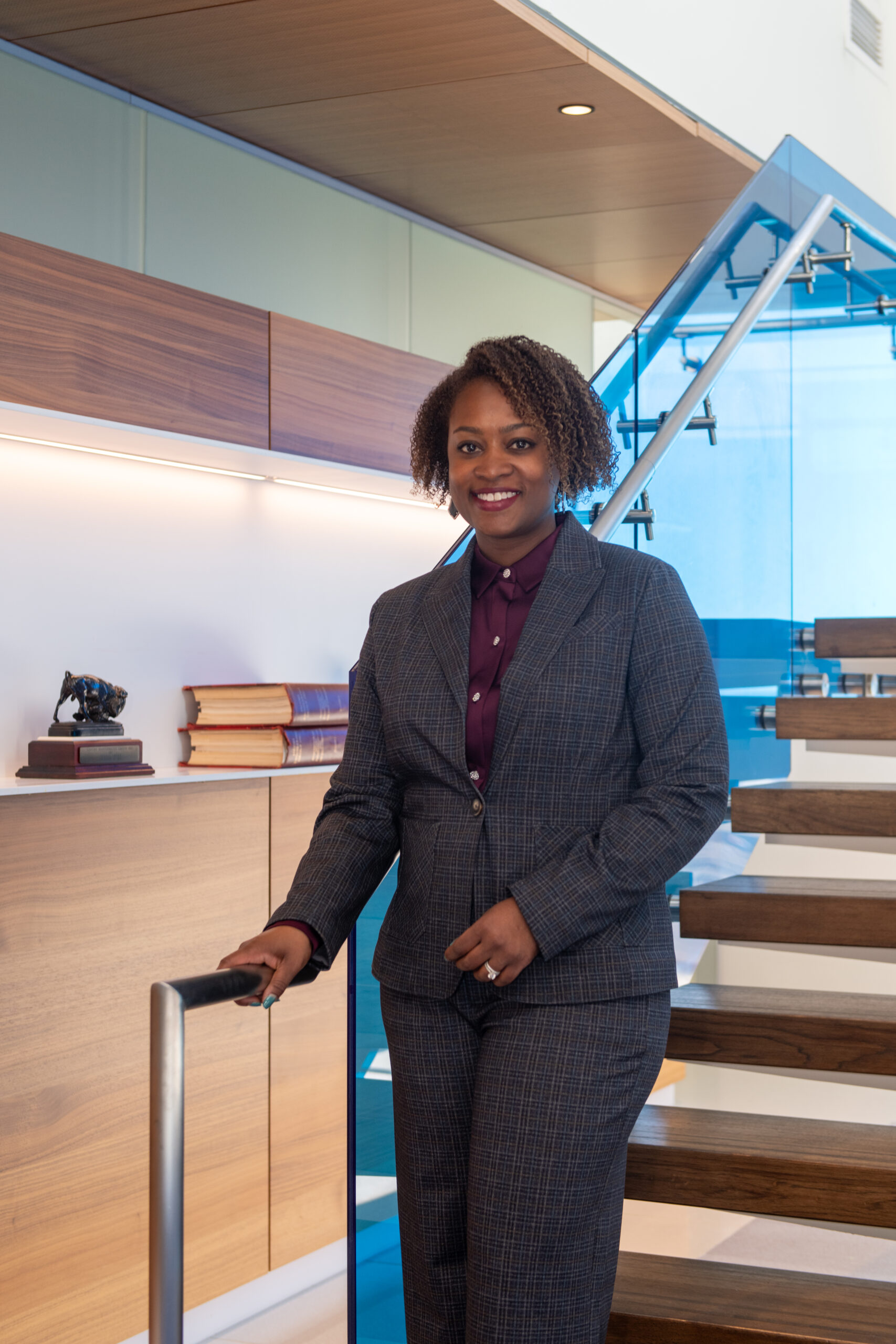Chasity Henry developed a keen sense of right and wrong growing up.
“That’s not fair!” she would tell her parents.
“Life is not fair,” her mom and dad often replied.
“As a little girl, I wanted to dig deeper, make my case and chart a course for achieving my desired outcome,” said Henry, who is now the deputy general counsel at Jacobs, a Dallas-based multibillion-dollar international technical services company. “Before long, adults would say ‘I think you’d make a great lawyer.’ The more I learned about what lawyers do — advocate for what’s right and what’s fair — I came to agree that being a lawyer made a lot of sense.”
Henry confesses that she watched a lot of Perry Mason reruns, which featured a lawyer struggling to find a solution to challenges and mysteries.
During the past 18 years, Henry has solved a lot of high-profile challenges as a lawyer, guiding several multibillion-dollar mergers and acquisitions as an in-house counsel at corporate giants Dr Pepper Snapple, Kimberly-Clark and CECO Environmental.

Earlier this year, the Association of Corporate Counsel’s DFW Chapter and The Texas Lawbook awarded Henry the 2023 DFW Corporate Counsel Award for Senior Counsel of the Year for a Large Legal Department.
In 2014, Henry founded the NEW Roundtable, a nonprofit that brings together in-house and outside counsel with the mission of promoting the advancement of African American women lawyers. NEW stands for Network of Empowered Women. The organization is celebrating its 10th anniversary this week with a gala.
The NEW Roundtable started with Henry and about two dozen other Black women lawyers and has grown to nearly 100 members, including Black women who are in-house counsel, lawyers at law firms or in government service or in academia.
“This broad base enables us to drive impactful connections and career development across various sectors of the legal profession,” Henry said in an interview with The Texas Lawbook. “Our members’ professional achievements across the legal spectrum demonstrate that The NEW Roundtable is not just creating opportunities — it is transforming the legal landscape for Black women attorneys. Through community, mentorship, and strategic alliances, we are reshaping what is possible in the legal profession.”
“Despite the progress we’ve made within our organization, one of the biggest frustrations is the slow pace of change in the legal profession regarding diversity, equity and inclusion,” Henry said. “Black women attorneys continue to face systemic barriers, but through The NEW Roundtable, we’re working to help each other overcome these challenges and make a lasting impact.”
The Lawbook recently interviewed Henry about the 10th anniversary of the NEW Roundtable, the successes and challenges of the organization and the legal profession regarding diversity and inclusion.
Texas Lawbook: Who can be a member and what does membership mean?
Chasity Henry: Membership is open to Black women attorneys practicing in the Dallas-Ft. Worth area. Membership in The NEW Roundtable is more than just a title — it’s an opportunity to join a dynamic community that empowers, impacts, and influences careers. As part of our mission, we focus on building mutually beneficial relationships between in-house counsel and private practice attorneys, facilitating career development, and providing access to key career influencers. Each year, we open up our membership process, and applicants must be nominated by a current member. If you’re interested in joining, feel free to email admin@newroundtable.com to learn more about the upcoming membership cycle, which begins in November.

Lawbook: How has The NEW Roundtable changed or evolved since you and others founded it?
Henry: The NEW Roundtable has evolved from casual meetings among Black women attorneys into a powerful organization focused on advancing careers and supporting personal growth. From an initial gathering of 25 women discussing shared challenges in the legal field, we have grown into a thriving space of encouragement where attorneys not only support each other but also expand their legal careers and business impact. Over the years, we’ve formalized initiatives that support career development and facilitate networking, helping Black women attorneys direct their own paths.
Lawbook: How have the objectives or priorities of The NEW Roundtable changed during the past ten years?
Henry: Our core mission — to Empower, Impact, and Influence — remains at the heart of everything we do, but we’ve expanded in scope. Today, The NEW Roundtable not only focuses on personal and professional growth but also on generating opportunities for its members to impact the community through board service, leadership programs, publishing, and speaking engagements. We’ve developed partnerships with law firms, in-house legal departments, and other legal employers to improve the recruitment, hiring, and promotion of Black women attorneys, and our influence now extends to state and national levels.
Lawbook: What are two or three of the biggest successes of The NEW Roundtable since you founded it?
Henry: One of the most significant successes of The NEW Roundtable is how we’ve helped Black women attorneys reach the pinnacle of their careers—especially in spaces where our presence has historically been limited. A prime example of this is our achievement in supporting Black women attorneys as they ascend to equity partner positions at major law firms. Nationally, the numbers remain staggeringly low. According to recent statistics, Black women make up less than 1% of equity partners at major law firms, underscoring just how challenging it is to break into these top-tier roles.
Despite these odds, The NEW Roundtable proudly counts multiple Black women equity partners among our members. This achievement is not just a testament to the individual brilliance of these women, but also a reflection of the power of our network. Through consistent professional development initiatives, strategic business referrals, and targeted relationship-building, we’ve helped our members overcome systemic barriers and secure positions that have been historically limited for Black women. The rarity of this accomplishment makes it all the more significant and highlights how The NEW Roundtable continues to impact the legal profession in profound ways.
Our members’ success as equity partners is just one aspect of the broader influence we’ve cultivated. Beyond advancing to these leadership roles, we have facilitated millions of dollars in business referrals, connecting in-house counsel with private practice attorneys, and ensuring that opportunities circulate within our network. These referrals have helped bolster members’ careers while also driving growth for their firms and companies. Additionally, The NEW Roundtable has seen its members ascend to the judiciary, general counsel, chief human resource officer, law school professor, and other c-suite and key leadership roles.
Lawbook: What has surprised you the most during the past decade?
Henry: One of the most pleasant surprises has been the immense power of our collective influence beyond our initial target audience of Black women attorneys in Dallas, including providing inspiration for other women of color to form strategic networks. What began as a small group supporting each other has grown into an organization capable of significantly shaping careers and the legal profession. The recognition we’ve gained, with requests to establish chapters in other cities, states, and countries, was unexpected and gives us much to consider as we plan for the next decade.
Lawbook: The political and legal landscape has changed on DEI during the past few years. How has that impacted your thinking and the mission of The NEW Roundtable?
Henry: The changing landscape around diversity, equity, and inclusion has only strengthened our resolve. As challenges arise, The NEW Roundtable remains steadfast in ensuring that Black women attorneys have a seat at the table — or, when necessary, creating our own tables. The recent pushback on DEI initiatives has reaffirmed our mission to empower our members to thrive despite the obstacles they may face.

Lawbook: How does The NEW Roundtable engage and support law students and early-career attorneys?
Henry: The NEW Roundtable has a rich history of mentorship and engagement with local law schools like UNT Dallas College of Law and SMU’s Dedman School of Law. At these institutions and many others, our members actively participate in various events and panels, offering critical guidance to law students on navigating their careers and building networks early on. This has helped forge strong connections between established Black women attorneys and students eager to enter the legal profession.
The NEW Roundtable has also had a long-standing role in the Diverse Attorney Pipeline Program (DAPP), a key initiative founded in Chicago by two incredible Black women attorneys, Tiffany Harper and Chasity Boyce, aimed at increasing the pipeline of underrepresented women lawyers. Our members have served as, board members, mentors, and interviewers at DAPP’s annual job fair, providing hands-on support to women of color as they seek to enter the workforce. By helping facilitate interviews and offer career advice and ongoing mentoring, we have played an integral part in preparing these law students for the realities of the legal profession.
These efforts reflect our broader mission of empowerment. By focusing on mentorship, we help ensure that future generations of Black women lawyers have the tools and support they need to succeed, continuing to open doors that have often been closed to women of color in this field.
Lawbook: What do you see for The NEW Roundtable during the next 10 years?
Henry: In the next decade, I see The NEW Roundtable continuing to advance our mission, focusing on fostering a thriving and supportive sisterhood. We will further cement our place as a critical voice in the legal profession, advocating for greater inclusion and ensuring Black women attorneys are not only present but thriving at the highest levels of the field. Our goal is to create systemic change within law firms, legal departments, and the broader legal community.
Publisher’s note: Please visit newroundtable.org to learn more about NEW Roundtable membership.
